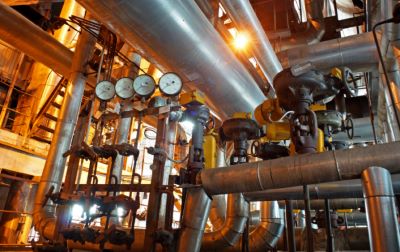
- This event has passed.
Power Plant Performance Test

Background & About the Course
The primary reasons for conducting a power plant performance test include:
- Identifying the baseline performance of the power plant under various operating conditions.
- Quantifying performance improvements before and after major maintenance outages.
- Verifying whether the power plant meets the specifications outlined in the applicable purchase contract, determining if liquidated damages or corrective actions are necessary.
Performance tests are typically conducted after the construction or retrofit of a plant to ensure it can achieve guaranteed parameters and function as intended. This 3-day training is designed to equip participants with the knowledge necessary for evaluating power plant testing and implementing efficiency improvements.
Course Objectives
Participants will be able to:
- Demonstrate a working knowledge of terminology associated with plant efficiency.
- Describe thermodynamic principles.
- Define terms such as entropy, enthalpy, latent heat, and sensible heat rate.
- Understand the thermodynamic processes involved in each component of a power plant.
- Explain how changes in heat rate affect operating costs.
- Describe the basic principles of boilers, steam turbines, and heat exchangers.
- Analyze how boilers, turbines, and heat exchangers impact heat rate.
- Identify common areas of efficiency loss in power plants.
- Explain the principles of plant efficiency testing using the ASME Performance Test Code.
- Evaluate data and develop plans for improvements.
Who Should Attend
This training is recommended for:
- Power Plant Operators
- Process and Engineering Staff
- Management and Business Staff involved in power plant operations
Course Content
- ASME Performance Test Code
- Thermodynamics
- Steam Generators: Theory, heat transfer, fuel considerations, auxiliary equipment, etc.
- Steam Generator Combustion Theory & Equipment: Theory and equations, fuel analysis, combustion equipment, efficiency testing, and monitoring
- Steam Turbines: Theory, types, construction details, valves, and efficiency
- Factors Influencing Turbine Efficiency: Steam conditions, exhaust loss, size, configuration, mode of operation, mechanical condition, etc.
- ASME Performance Test Code for Turbines: Practical aspects of turbine testing, thermal kits, generator corrections, heat rate calculations, primary flow calculations, diagnosing turbine problems, and examples of testing programs
- Power Plant Heat Exchangers: Heat transfer theory and condenser testing
- Factors Affecting Heat Exchanger Performance: Low circulating water flow rate, high air leakage, fouled tubes, high inlet water temperature, load reduction, etc.
- Centrifugal Pumps: Theory, design and construction, testing, and monitoring operations
- Measuring Equipment: Temperature, pressure, flow, electrical, flue gas, data logging, and computer systems
- Evaluation: Statistics, test design, data analysis, and trending
ABOUT THE COURSE LEADER:
Dr. Willy Adriansyah, ST, MM graduated from Bandung Institute of Technology specializing on energy conservation. Post graduate program also obtained from ITB while the Doctoral is from Norway.
In addition to his duty as a lecturer, he has got abundant of real industrial experiences especially in power generation & oil/gas companies. Since 2013 he has completed many power generation performance tests; Cilegon, Lumut Balai, Ulu Belu, Dieng, Patuha and also other piping & coal handling optimization related to power generation.
Clients uses his services such as: PT. Indonesia Power, PT. Star Energi, PT. PLN, Total Indonesie, PT. Pama Persada, Chevron & Pertamina.
